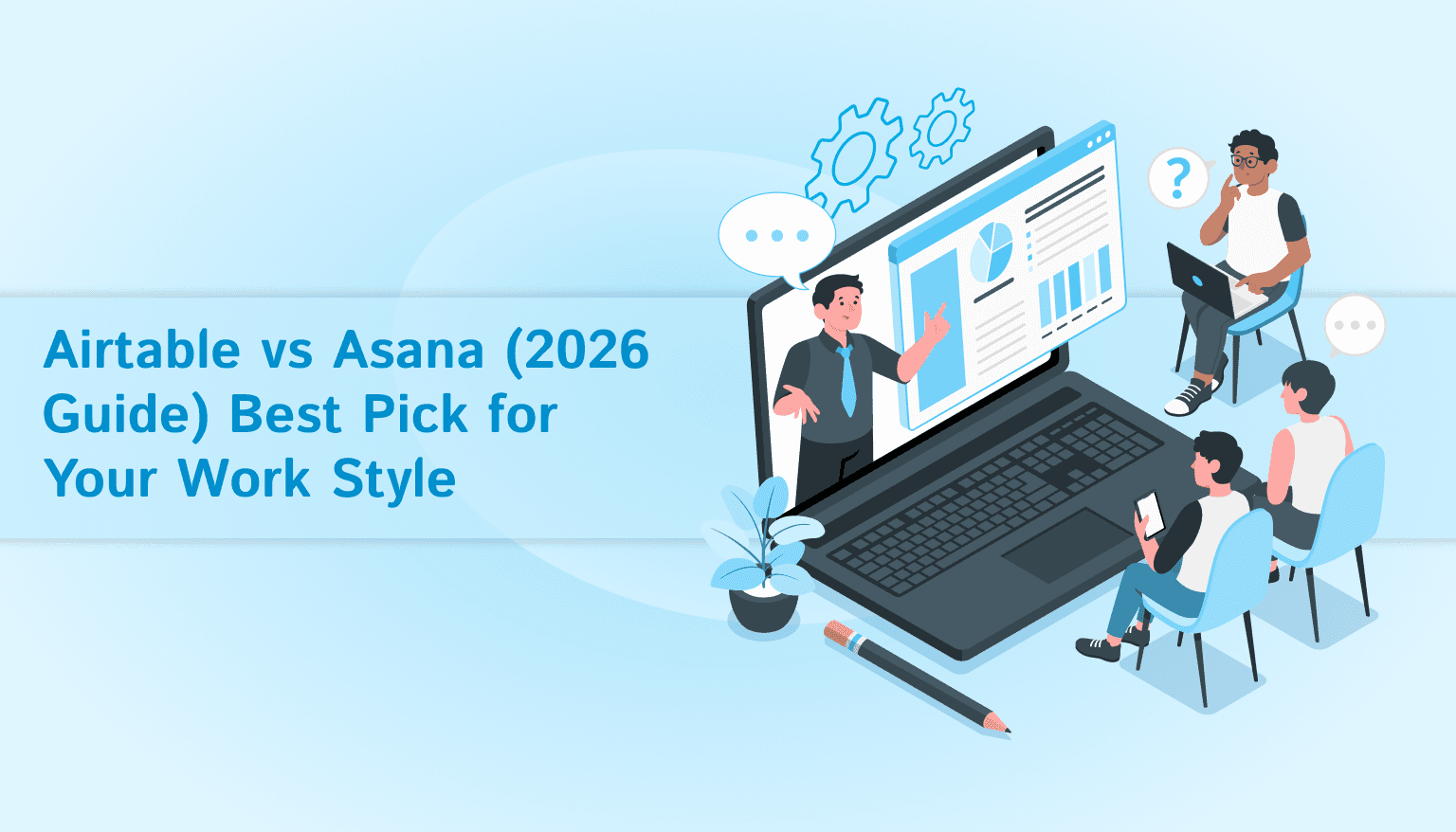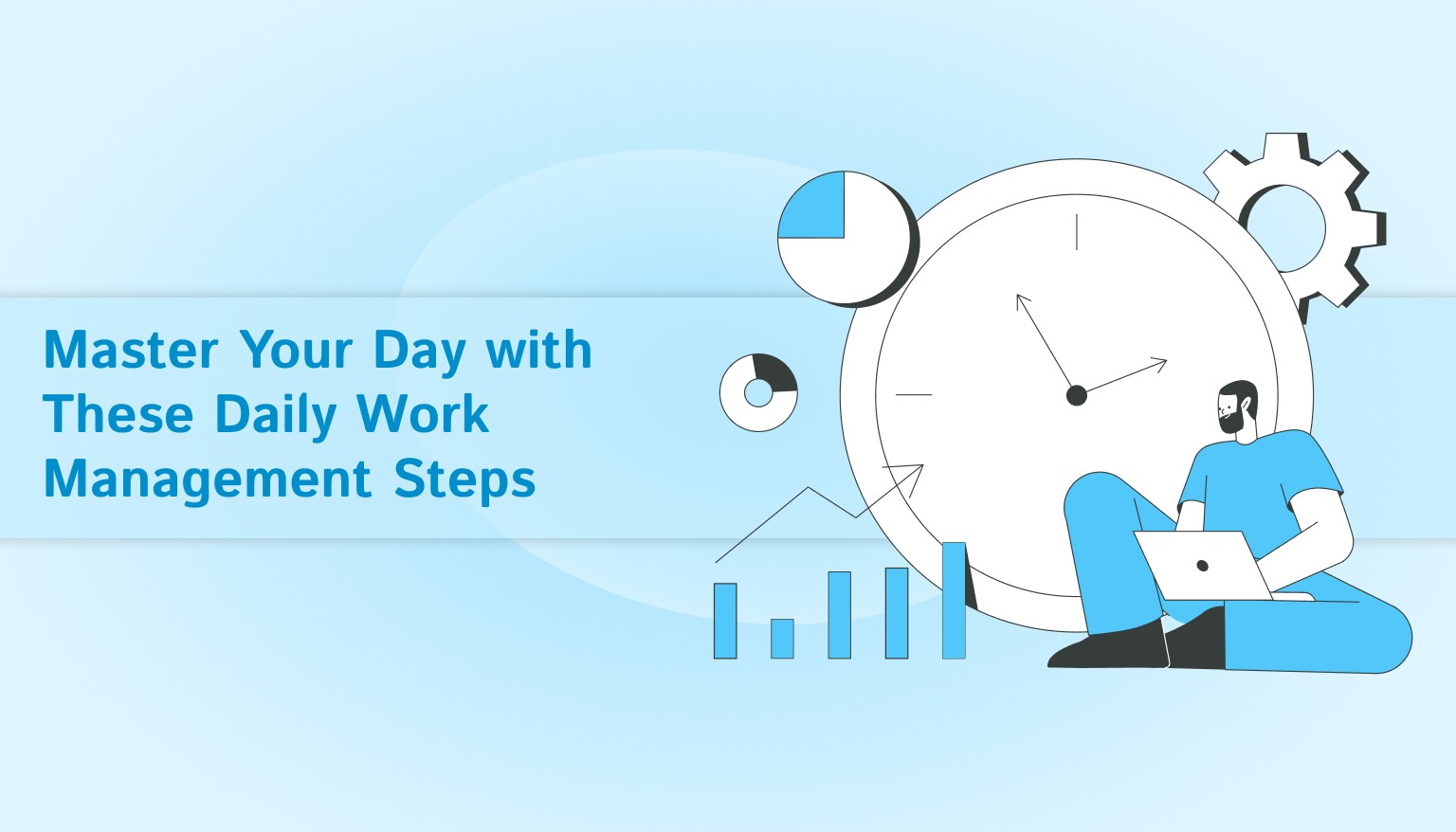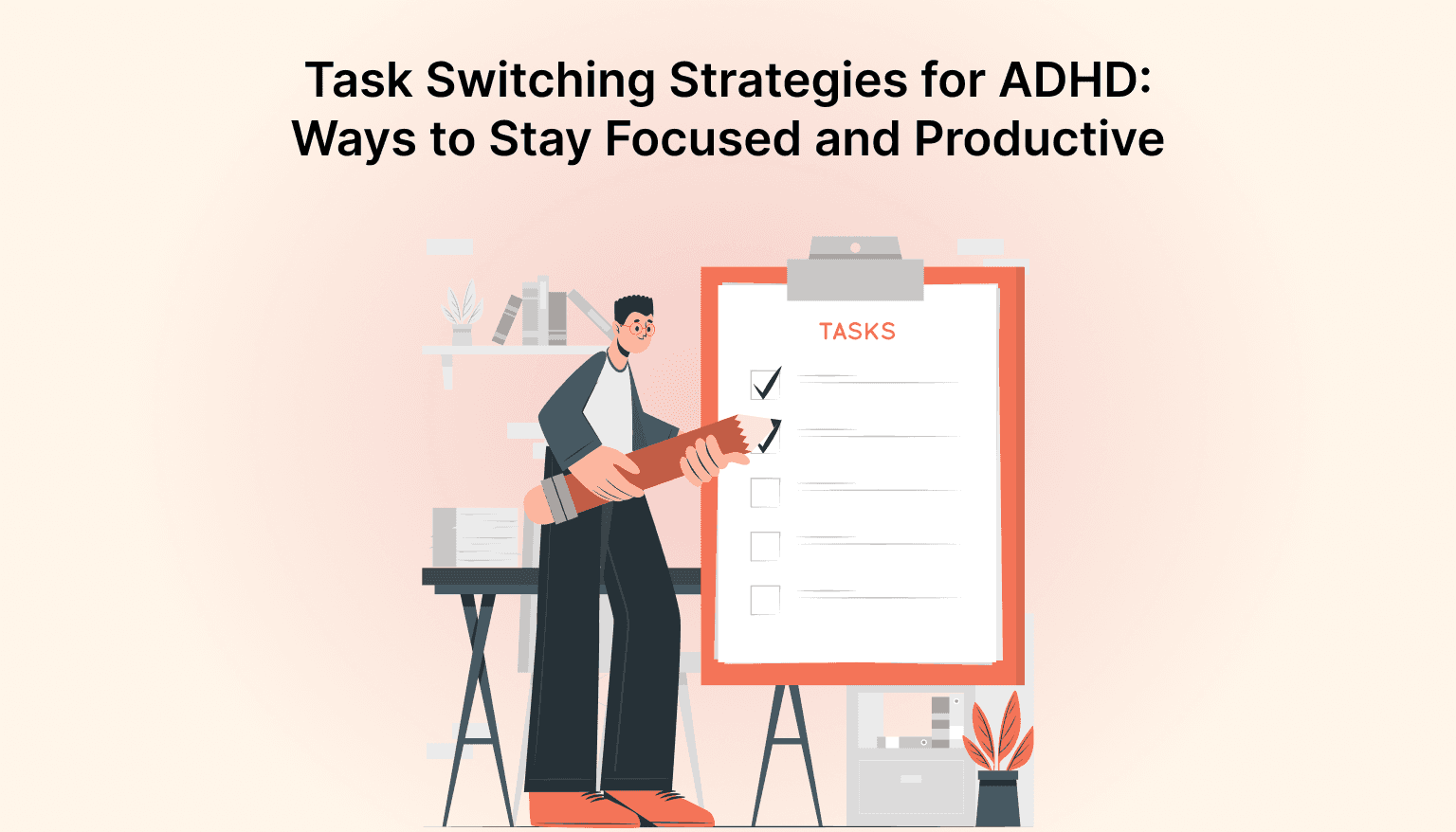Best Organization Tools for ADHD in 2025: Digital and Physical Solutions That Work

8
For people with ADHD, staying organized isn’t just hard, it’s a daily battle with time blindness, mental clutter, and task overwhelm.
And this challenge is more common than ever. In 2024, 1 in 9 U.S. children were diagnosed with ADHD, up by 1 million in six years. Meanwhile, over 15.5 million U.S. adults also live with the condition, many without a reliable support system.
The right tools can make all the difference, helping ADHD brains prioritize, plan, and stay on track without burning out.
In this blog, we’ll share the best digital and physical organization tools designed specifically to support how ADHD minds work; so you can build structure, boost focus, and finally feel in control of your day.
What Is ADHD?
ADHD (Attention-Deficit/Hyperactivity Disorder) is a condition that affects how the brain manages attention, time, and tasks. It impacts executive functions like planning, organization, and follow-through.
Common symptoms include:
Trouble focusing or staying on task
Forgetting details or deadlines
Struggling to start or complete tasks
Underestimating how long things take
It’s not about laziness or lack of effort, it’s how the brain processes information. With the right tools, many people with ADHD build systems that help them stay focused and organized.
Now that we’ve covered how ADHD affects focus and follow-through, let’s look at what kind of tools actually help.
What ADHD Brains Need (Before You Pick a Tool)
Before choosing a tool, it helps to know what actually supports the way ADHD brains work. Look for features that reduce overwhelm and help you take action fast.
The best tools for ADHD offer:
Visual organization – Timelines, boards, or calendars work better than plain lists
Quick task capture – Ideas disappear fast, so fast input matters
Time blocking or schedule awareness – Helps combat time blindness
Consistency without rigidity – Supports routines but adapts to your energy
Easy prioritization & context switching – Lets you focus, then shift, without friction
Cross-life coverage – One system for work, life, and everything in between
Pro tip: Flexibility is key. What works this week might not work next week. The right tool grows with you.
Want a broader look at tools that support ADHD beyond just organization? Don’t miss our guide to the best ADHD productivity apps and tools, covering everything from focus boosters to habit trackers.
Now that we know what features ADHD brains need most, let’s break down the digital tools that support structure and focus without piling on complexity.
Best Digital Organization Tools for ADHD
Digital tools can be a game-changer for ADHD, if they’re designed to reduce friction, not add to it. Here are the top picks that support focus, scheduling, and streamlined planning.
1. Akiflow – Best for Centralizing Tasks and Time
Akiflow is built for brains that juggle too much. It brings your tasks, calendar, and to-dos into one distraction-free workspace.

Why it works for ADHD:
Pulls in tasks from Gmail, Slack, Notion, Asana, and more
Turn any task into a time-blocked calendar event
Helps with time blindness by visualizing your day
Keyboard shortcuts = lightning-fast task capture
Clean, clutter-free interface prevents overload
AI-assisted prioritization removes guesswork
Designed for clarity and control: no context switching, no chaos.
Try Akiflow free and experience a productivity tool that actually fits how your brain works.
2. Reclaim.ai – Best for Automated Time Blocking
If you struggle with protecting time for focused work, Reclaim can help. It automatically schedules tasks, habits, and breaks around your calendar events.

Key ADHD-friendly features:
Auto-schedules deep work, meals, workouts, and more
Reschedules tasks intelligently if priorities shift
Works well alongside Akiflow for dynamic planning
Reduces manual effort and decision fatigue
3. Todoist – Best for Simple Task Lists
Todoist is a no-fuss to-do list app that’s easy to use but powerful enough to support ADHD workflows.

What makes it helpful:
Add tasks in natural language ("Follow up Monday at 2 pm")
Use color-coded priorities and recurring reminders
Great for lightweight task capture
Integrates with your calendar to stay on schedule
4. Notion (with ADHD Templates) – Best for Creative Planning
For those who like to organize visually and creatively, Notion offers total flexibility. Just beware of building overly complex setups.

Why can it work well?
Custom dashboards for tasks, routines, or dopamine menus
Useful for journaling, weekly planning, or brain dumps
Plenty of ADHD-friendly templates to get started
Best when paired with a calendar-based app (like Akiflow or Reclaim)
Digital tools are powerful, but sometimes you need something tangible, tools you can see and touch. Let’s look at physical tools that help anchor your day.
Best Physical Organization Tools for ADHD (No Apps, No Screens)
Sometimes, the best way to get organized is to unplug. In this list, we are focusing on physical, hands-on tools, such as planners, timers, and fidget aids, not apps or digital software. These tangible tools give ADHD brains the visual structure and support they need to stay focused and follow through, without screen distractions.
Here are five ADHD-friendly physical tools, how each one works, and why it helps:
1. Paper Planners
Examples: Panda Planner, Passion Planner, Moleskine Daily Planner
Writing by hand strengthens memory and reduces mental clutter. Physical planners provide a structured space to plan your day, prioritize tasks, and stay grounded, without the temptation of digital notifications.
Why it helps:
Improves focus and memory
Daily layouts guide your schedule
No digital interruptions
Built-in prioritization sections support decision-making
Use this for: Planning routines, visualizing goals, and maintaining daily momentum.
2. Visual Timers
Examples: Time Timer MOD, TickTime Cube
Visual timers make the passing of time concrete, which is crucial for overcoming time blindness. They help pace your work and create clear boundaries for focused work periods and breaks.
Why it helps:
Makes passing time visible
Encourages deep work intervals
Reduces time anxiety
Supports better time management
Use this for: Focus sessions, timed tasks, and structured breaks.
3. Whiteboards (or Sticky Notes Walls)
Examples: Quartet Magnetic Whiteboard, Post-it Super Sticky Notes
Turning ideas into something you can see at a glance helps declutter your mind. Whiteboards and sticky notes allow you to track tasks, update plans, and keep priorities visible.
Why it helps:
Externalizes tasks and goals
Easy to update or rearrange
Provides a quick, visual overview
Reduces memory overload
Use this for: Weekly planning, brain dumps, and project roadmaps.
4. Color-Coding Systems
Examples: Mildliner Highlighters, Pilot Frixion Erasable Pens
Adding color to your notes, planners, or task lists helps your brain sort and prioritize information faster. Color coding makes organizing tasks more engaging and rewarding.
Why it helps:
Speeds up information scanning
Differentiates task types and urgency
Makes organizing more engaging
Creates mental shortcuts through color association
Use this for: Energy-based planning, urgent task sorting, and organizing notes.
5. Fidget Tools & Focus Aids
Examples: Speks Magnetic Balls, Fidget Cube
Fidget tools provide an outlet for restless energy without pulling you away from your tasks. They are a quiet, sensory-friendly way to maintain attention during meetings, studying, or work periods.
Why it helps:
Manages restlessness
Reduces the urge to switch tasks impulsively
Supports sustained attention
Helps anchor focus during passive tasks
Use this for: Staying present in meetings, quiet work blocks, and studying.
You’ve seen the options, now how do you put them together? Here’s how to build a simple, ADHD-friendly organization system that actually sticks.
How to Build Your ADHD-Friendly Organization System
You don’t need a dozen tools, you need the right combo that helps you stay on top of tasks, time, and focus. Here’s how to build a simple system that actually works.
1. Start with one core tool
Pick one digital tool (like Akiflow or Todoist) to capture and manage your daily tasks. Make sure it syncs with your calendar and fits your workflow.
Example: Akiflow to plan your week, drag tasks into your calendar, and stay on track with what matters most.
2. Add a visual anchor
Use a whiteboard, planner, or sticky notes to externalize key tasks or goals. This keeps your day visible even when the app is closed.
Example: Write your top 3 tasks on a sticky note next to your screen each morning.
3. Protect your time
Use a time-blocking tool like Reclaim.ai or Akiflow to carve out focused work blocks, breaks, and buffer time.
Tip: Don’t just plan tasks, schedule them.
4. Build a reset routine
Pick a time once a week to review what worked, what didn’t, and prep for the week ahead. This prevents clutter from building up again.
Bonus: Use Notion or paper journals for reflections, dopamine menus, or routine tracking.
5. Keep it flexible
Your energy and needs will change. Some days, digital works best. On other days, pen and paper win. ADHD systems should adapt with you.
Organization with ADHD isn’t about doing it all, it’s about finding what works for you. Let’s wrap up with a few key takeaways.
Final Thoughts
Living with ADHD doesn’t mean you can’t be organized, it means you need systems that work the way your brain does.
The best organization tools for ADHD don’t demand perfection. They reduce friction, make time visible, and give you just enough structure to stay on track without burning out.
Start small. Try one tool. Build a routine that feels good. And adjust as you go.
Ready to Take Back Control of Your Day? Try Akiflow free and see how it feels to finally plan with clarity.



